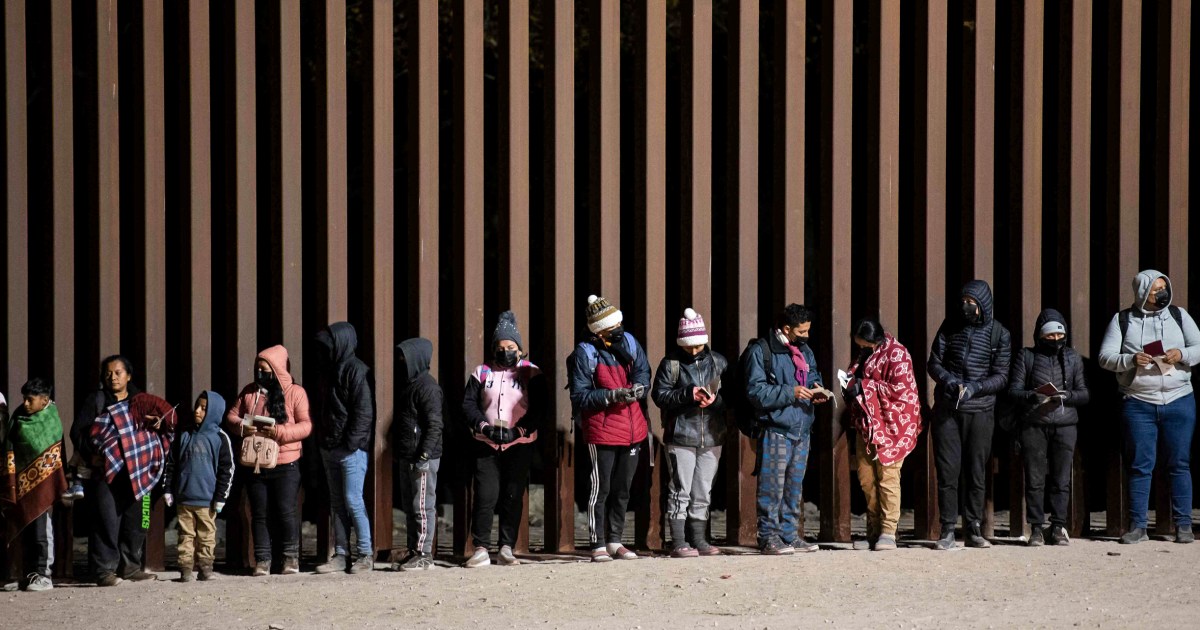WASHINGTON – A sharp drop in illegal border crossings along the Southwest border that began in January after the Biden administration announced tougher immigration measures continued through February, the administration announced Wednesday.
The data published by the U.S. Customs and Border Protection paints a picture of who is trying to enter the country at a time of intense political controversy with Republicans who see immigration as a major issue for voters and accuse President Biden and Homeland Security Secretary Alejandro Mayorkas of not doing enough to secure the southern border.
US Border Patrol officials encountered migrants 128,877 times trying to cross the border in February between legal border crossings. That’s about the same as January’s number, 128,913, and is the lowest number of encounters per month since February 2021, the agency said.
The number of encounters does not necessarily equate to individual persons, as some migrants attempt to cross the border repeatedly. The agency said about 25% of those found in February were repeat encounters, meaning that at some point in the past 12 months they had been detained by US officials as they tried to enter the country.
Compared, US officials detained immigrants 221,693 times between ports of entry along the Mexican border in December.
Then, in early January, the administration announced a new policy in which Mexico would accept back Cubans, Haitians, Nicaraguans and Venezuelans under a pandemic-era rule that denies migrants the right to seek asylum as part of an effort to prevent the spread of COVID-19. . The number of migrants intercepted from those four countries plummeted after the new policy went into effect and remained low through February.
At the same time they announced the new policy, the US also agreed to admit up to 30,000 people a month from those four nations in a process called humanitarian parole if they applied online, walked into an airport and found a financial sponsor. According to CBP figures, 22,755 Cubans, Haitians, Nicaraguans and Venezuelans entered the country on parole through that process in February. Humanitarian parole differs from other immigration pathways in large part because it is temporary, often for only one or two years, and does not provide a long-term pathway to living in the US.
The administration has also proposed denying asylum generally to anyone who travels through another country on their way to the US without seeking protection there; in fact, all non-Mexicans presenting themselves at the southern border of the US. That proposal, which has drawn harsh criticism from immigrant rights advocates, is currently in a 30-day comment period. days before it takes effect when Title 42 expires in May.
According to the CBP report, drug seizures also increased 6% in February compared to January. Specifically, fentanyl seizures increased by 58%.

